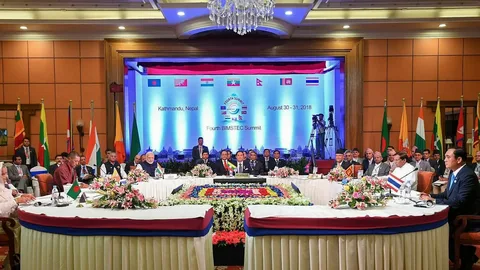The United Arab Emirates (UAE) has become one of the most dynamic global hubs for business, education, and employment. Every year, thousands of expatriates relocate to the UAE for better career prospects, academic opportunities, and personal growth. With such a massive inflow of foreign residents, the need for proper documentation verification has grown significantly. Among the most critical requirements for expatriates is the MOFA attestation, a process managed by the Ministry of Foreign Affairs (MOFA) of the UAE.
In recent years, particularly after the COVID-19 pandemic and the digitization wave, the UAE government has updated several rules and processes related to MOFA attestation. These updates aim to streamline documentation, reduce fraudulent activities, and ensure international standards of authentication. This article provides an in-depth look into the latest updates on MOFA attestation rules in the UAE, highlighting their impact, benefits, and the way forward for expatriates, businesses, and educational institutions.
Understanding MOFA Attestation
Before diving into the latest updates, it is crucial to understand what MOFA attestation means. Simply put, MOFA attestation is the official validation of documents by the Ministry of Foreign Affairs of the UAE. This attestation confirms that the document in question is authentic and has been verified by the concerned authorities in the country of origin as well as the UAE.
The process typically involves multiple steps:
- Notarization in the home country – where the document originates, it must first be verified by relevant notaries or education boards.
- Attestation by the Ministry of External Affairs (or equivalent authority) in the home country.
- Attestation by the UAE Embassy or Consulate in the home country.
- Final attestation by MOFA in the UAE.
This attestation is required for a variety of documents, including educational certificates, marriage certificates, birth certificates, business contracts, and powers of attorney.
Why MOFA Attestation is Important
The UAE government places great emphasis on document attestation because it helps:
- Prevent the submission of forged or fraudulent documents.
- Standardize the verification process for expatriates and businesses.
- Establish credibility of certificates for legal, academic, and professional purposes.
- Facilitate employment, higher education, visa processing, and business licensing.
Without MOFA attestation, documents may not be legally recognized in the UAE. For instance, if a professional wants to apply for a job, their educational certificates must be attested to prove their authenticity. Similarly, for family visas, marriage and birth certificates must go through this process.
Latest Updates on MOFA Attestation Rules in the UAE
Over the past few years, several changes have been introduced to make the attestation process more transparent and efficient. Let’s explore these updates in detail.
1. Digital Transformation of the Attestation Process
The UAE government has been a global leader in embracing digital solutions. One of the most notable updates is the shift towards digital attestation services. Today, applicants can apply for MOFA attestation online through the official MOFA website or the UAE Pass app.
This digitization allows expatriates to:
- Submit documents electronically.
- Track the status of their application in real time.
- Pay service fees online.
- Reduce the need for physical visits to government offices.
This update significantly reduces processing time and makes the entire system more user-friendly. For people living in different Emirates, digital access ensures convenience and uniformity in services.
2. Mandatory Appointment Booking
Another update is the requirement for advance appointment bookings. Previously, applicants could visit MOFA service centers directly, often leading to long queues and delays. Now, individuals must book an appointment through the MOFA website or app before visiting a service center.
This ensures:
- Proper crowd management.
- Reduced waiting times.
- Efficient allocation of resources at service centers.
For urgent attestation needs, applicants can select express services, though these come at a higher fee.
3. Revised Fee Structure
The UAE has also revised its fee structure for MOFA attestation. Depending on the type of document, the fees may vary. Educational, commercial, and personal documents have different attestation charges. Additionally, express services carry premium fees for those who need quick processing.
While some expatriates initially found the revised fees higher, the government justifies them by pointing to faster, more reliable, and digitized services.
4. Integration with UAE Pass
In line with the country’s smart government vision, MOFA services are now integrated with UAE Pass, the national digital identity for residents and citizens. By using UAE Pass, applicants can log in securely, upload their documents, and even receive digital versions of attested certificates.
This integration reduces the risk of identity fraud and enhances the overall security of the attestation process.
5. Acceptance of Electronic Certificates
In the past, physical copies of certificates were mandatory for attestation. However, a major change has been the acceptance of electronic certificates issued by recognized universities, schools, and government authorities. This is particularly beneficial for students and professionals who may not be physically present in their home country to collect hard copies.
The MOFA, however, insists that electronic certificates must come with a valid QR code or digital verification system from the issuing authority to ensure authenticity.
6. Simplified Procedures for Business Documents
For businesses, MOFA has simplified the attestation of commercial documents such as contracts, trade licenses, and agreements. The new system allows companies to upload these documents through the digital portal and receive attested versions electronically.
This has greatly reduced paperwork and waiting times, particularly benefiting entrepreneurs and foreign investors who want to establish businesses in the UAE.
7. Enhanced Verification Measures
Due to rising cases of fake degrees and forged certificates globally, the UAE has introduced stricter verification measures. Educational documents now undergo more rigorous checks, especially for professions requiring licenses such as doctors, engineers, and teachers.
Applicants are advised to ensure that their certificates are issued by recognized and accredited institutions, as unrecognized degrees may be rejected even before the attestation stage.
8. Attestation Services Through Authorized Typing Centers
To make the process more accessible, MOFA has partnered with several authorized typing and service centers across the UAE. Applicants can now submit their documents at these centers, which forward them to MOFA for attestation.
This has eased the burden on MOFA headquarters and made services more available to residents in remote areas.
9. Faster Turnaround Time
One of the main advantages of the updated system is faster turnaround time. While attestation used to take several weeks in the past, it can now be completed within two to three working days in most cases. For urgent requirements, same-day or next-day attestation is possible through express services.
10. Multilingual Customer Support
With expatriates from over 200 nationalities living in the UAE, communication barriers were a common issue in the past. MOFA has now introduced multilingual customer support, both online and at service centers, to assist applicants in English, Arabic, Hindi, Urdu, and other widely spoken languages.
Impact of the Latest Updates
The recent changes in MOFA attestation rules are not just about administrative convenience; they reflect the UAE’s broader vision of becoming a smart, global, and inclusive economy.
- For Expatriates – The updated system offers ease of access, less bureaucracy, and more transparency. People no longer need to make multiple visits or face unnecessary delays.
- For Businesses – Simplified business document attestation accelerates the process of setting up companies, finalizing contracts, and initiating trade partnerships.
- For Educational Institutions – With the acceptance of electronic certificates, universities and schools worldwide can now send verified documents directly, reducing the risk of fake qualifications.
- For the Government – The updated rules strengthen the UAE’s regulatory framework and protect against fraudulent activities, thereby enhancing the country’s international reputation.
Challenges Faced by Applicants
Despite these improvements, some challenges remain:
- Lack of Awareness: Many expatriates are still unaware of the digital services and continue to rely on traditional methods.
- Document Rejections: If documents are not issued by recognized authorities, they may get rejected, leading to frustration and delays.
- Costs: While the process is efficient, some applicants find the revised fee structure expensive, especially when attesting multiple documents.
- Technical Issues: Like any digital platform, the online portal may sometimes face technical glitches that delay submissions.
Tips for a Smooth MOFA Attestation Process
To ensure a seamless experience with MOFA attestation, applicants should:
- Verify that their documents are from accredited institutions.
- Use the official MOFA website or UAE Pass for online submissions.
- Book appointments in advance to avoid last-minute issues.
- Keep both physical and digital copies of attested documents for future use.
- Opt for express services only when urgently required to save costs.
Future Outlook
Looking ahead, the UAE government is expected to further enhance the attestation process through artificial intelligence (AI) and blockchain technology. Blockchain, in particular, could provide instant verification of certificates without the need for multiple layers of attestation, thereby making the system even more efficient and secure.
Additionally, as the UAE prepares for future global events such as Expo legacy projects and its growing role as a business hub, more countries may enter into bilateral agreements with the UAE for direct recognition of documents, reducing the need for lengthy attestation procedures.
Conclusion
The latest updates on MOFA attestation rules in the UAE reflect the country’s commitment to modernization, efficiency, and global best practices. By embracing digital solutions, revising fee structures, and tightening verification measures, the UAE has created a more streamlined and reliable system for document authentication.
For expatriates, businesses, and students, understanding and complying with these updated rules is essential to avoid delays and ensure smooth transitions in employment, education, or personal matters. As the UAE continues to evolve as a global hub, MOFA certificate attestation will remain a cornerstone of its documentation framework, but one that is increasingly efficient, transparent, and secure.







